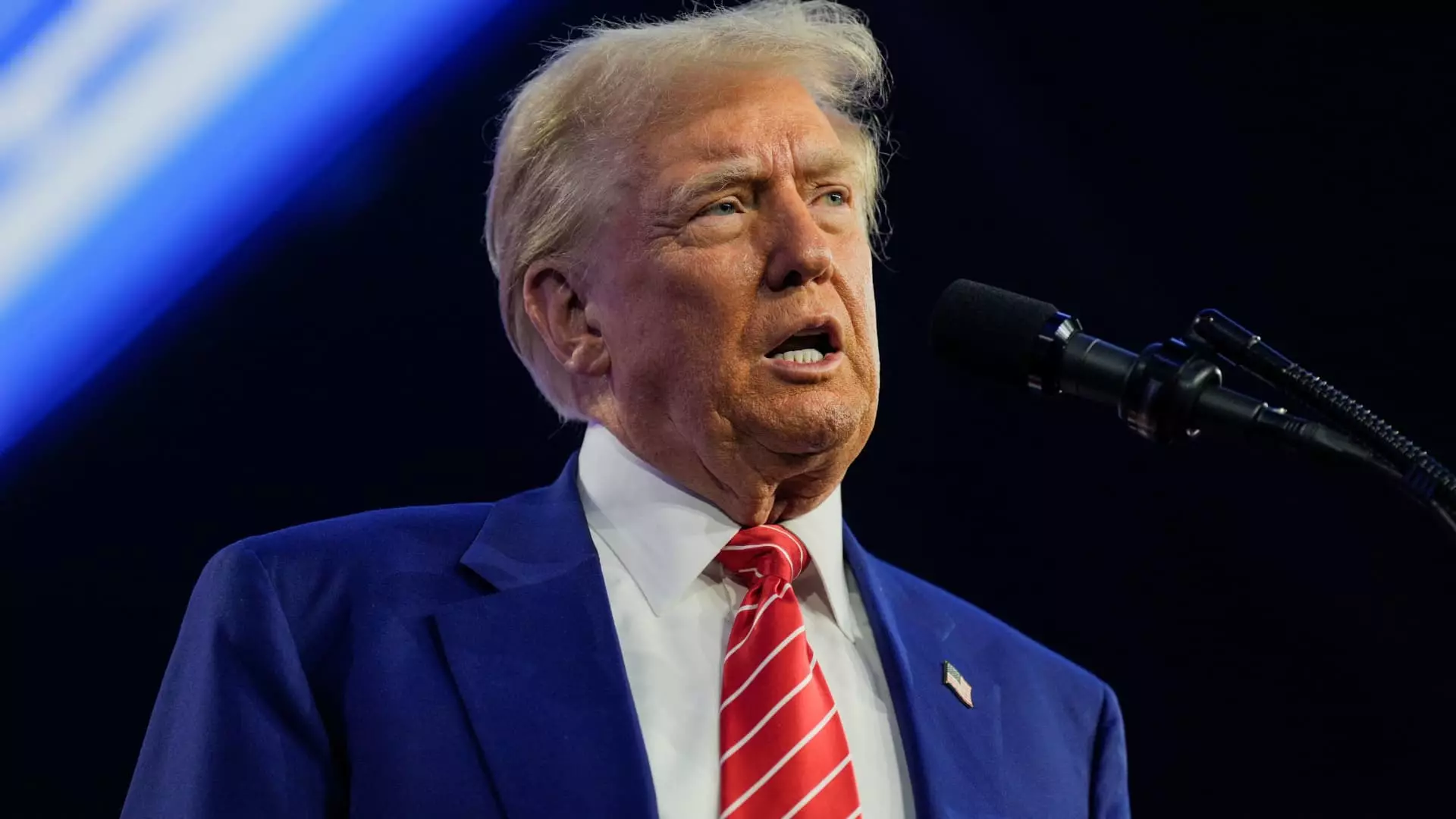The ongoing legal struggle surrounding TikTok in the United States has become a defining issue in the intersection of technology, national security, and politics. With President-elect Donald Trump requesting the Supreme Court to delay a critical law that threatens to ban the popular social media app unless it divests from its Chinese parent company, the implications of this case reach far beyond a single platform. This situation underscores the complexities and challenges of navigating foreign influence in domestic digital spaces, as well as the changing dynamics of political leadership in America.
At the forefront of the legal battle is the Protecting Americans from Foreign Adversary Controlled Applications Act, a bipartisan initiative that has gained traction due to rising concerns over data security and foreign interference. Signed into law by President Joe Biden after being passed by Congress, this legislation presents a stark ultimatum for ByteDance, TikTok’s parent company: divest from the app or face a ban. Highlighting the urgency of the situation, the Supreme Court’s decision to fast-track the case indicates a clear acknowledgment of the political and social ramifications tied to TikTok’s operation in the U.S.
This law reflects a broader trend of increasing scrutiny towards foreign technology companies, particularly those with ties to nations perceived as adversarial to U.S. interests. As debates around data privacy and user security intensify, TikTok has found itself at the nexus of these discussions, facing existential threats based on its ownership structure.
In a strategic move, Trump’s team filed a request to the Supreme Court for a pause on the law’s implementation until after the new administration settles in. Trump’s attorney, D. John Sauer, articulated that the request does not take a stance on the case’s core issues but seeks to afford the incoming administration the chance to negotiate a political resolution. This request serves as a reminder of Trump’s previous efforts to ban TikTok in 2020—an endeavor stymied by judicial resistance.
Trump’s assertion that only he possesses the necessary political acumen to broker a resolution highlights the contentious nature of his relationship with TikTok and its CEO, Shou Zi Chew. Interestingly, Trump’s newfound appreciation for the platform hints at the multifaceted dimensions of political power as influenced by public sentiment and business relationships.
National Security Concerns: Real or Perceived Threats?
The case thrusts to the forefront significant debates over national security. The Justice Department has vigorously defended the law, invoking fears that TikTok could potentially be manipulated by the Chinese government for nefarious purposes—a sentiment echoed by a federal appellate court. These concerns include the risk of data harvesting and the potential for the Chinese government to shape narratives on the platform.
However, the Chinese government has consistently denied these allegations, branding them as unfounded. TikTok itself countered these assertions in its court filing, framing the ban as a violation of First Amendment rights. This juxtaposition of interests highlights a persistent tension between federal regulation and the safeguarding of free expression in an increasingly digitized world.
The outcome of this case has the potential to reshape not just TikTok’s future but also the landscape of digital application regulation in the U.S. Should the Supreme Court lean in favor of the law, it could harmonize with an emerging trend of regulating foreign-owned tech entities, reshaping the way these platforms operate and are perceived by the public. Conversely, if TikTok’s arguments prevail, it may set a precedent for operational legitimacy against governmental overreach in the digital domain.
As the clock ticks down to the January 19 deadline and with oral arguments set for January 10, the stakes couldn’t be higher. The intersection of technology and governance is no longer confined to theoretical discussions; it has manifested into a real-world scenario that could have lasting effects on policy, security, and the fabric of free speech in America’s digital frontier.
The unfolding legal saga surrounding TikTok encapsulates significant questions regarding foreign influence, national security, and free speech. With the Supreme Court poised to deliberate on a matter with profound implications, all eyes will be on the judiciary as it navigates the delicate balance between securing American interests and preserving democratic values in the digital age. The resolution of this case could indeed chart a new course for technology regulation in the United States, prompting both legal and political stakeholders to rethink strategies in an ever-evolving digital ecosystem.


Leave a Reply